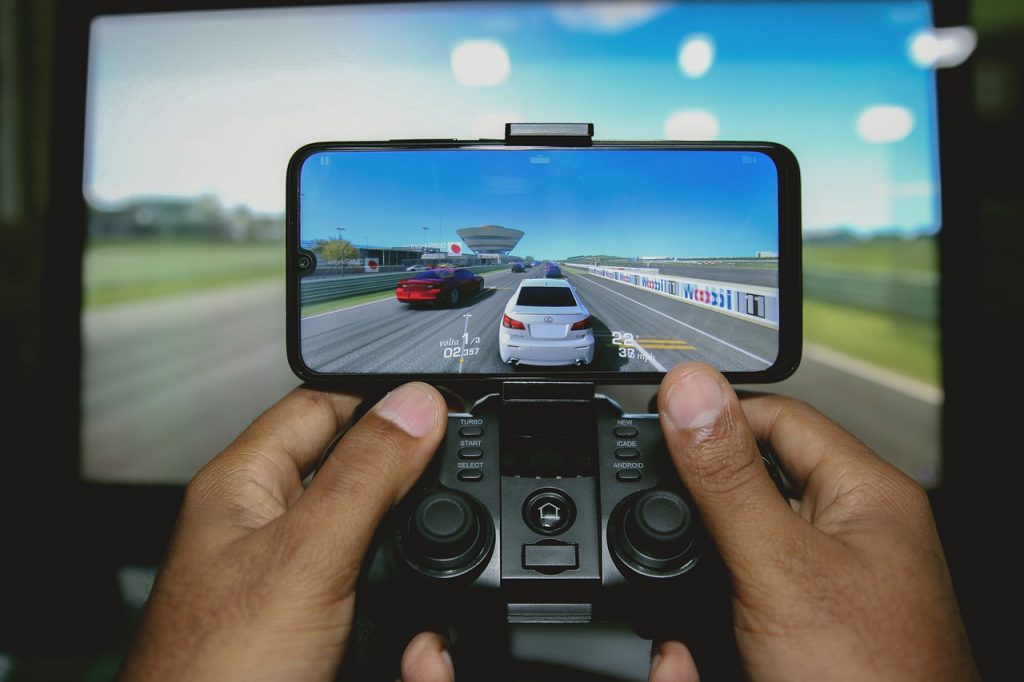Introduction
The gaming industry, once confined to the realm of simple pixelated graphics and basic gameplay, has undergone a revolutionary transformation. In recent years, technological advancements have propelled gaming into uncharted territories, delivering an unprecedented level of immersion and engagement for players. Let’s delve into the key developments that are reshaping the gaming landscape.
Evolution of Graphics: From Pixels to Realism
In the early days of gaming, pixels dominated the visual landscape. Games like Pong and Space Invaders were groundbreaking, but the graphical fidelity was rudimentary at best. Fast forward to the present, and we find ourselves immersed in a world of high-definition graphics that border on photorealism. The evolution of graphics technology has elevated gaming to an art form, blurring the lines between virtual and reality.
The Rise of Virtual Reality (VR)
One of the most remarkable strides in gaming technology is the advent of Virtual Reality (VR). VR has transcended novelty and become a mainstream phenomenon, offering an unparalleled level of immersion. Players can now step into virtual worlds, interact with environments, and experience games in ways previously unimaginable.
Artificial Intelligence (AI) in Gaming
The integration of Artificial Intelligence (AI) has transformed the gaming landscape. AI is not only responsible for powering intelligent non-player characters (NPCs) but also for driving procedural content generation. Games now adapt to player behavior, offering a personalized and dynamic experience that keeps players on the edge of their seats.

Cloud Gaming: Gaming Without Boundaries
Cloud gaming has emerged as a game-changer, allowing players to stream games without the need for high-end hardware. The cloud-based approach brings accessibility to a new level, enabling gamers to enjoy resource-intensive titles on a range of devices. However, challenges such as latency and internet stability persist, raising questions about the widespread adoption of this technology.
Enhanced Gaming Hardware: Beyond Consoles
Gaming hardware has witnessed a significant overhaul, with advanced consoles and high-performance gaming PCs pushing the boundaries of what’s possible. The competition between console giants and the growing popularity of custom-built gaming rigs highlight the importance of top-tier hardware in delivering a seamless gaming experience.
Augmented Reality (AR) Gaming
While VR immerses players in entirely virtual environments, Augmented Reality (AR) overlays digital elements onto the real world. AR gaming applications, like Pokémon Go, have captivated audiences by blending the virtual and physical realms. This technology opens up new avenues for interactive and location-based gaming experiences.
Gaming on the Go: Mobile Gaming Revolution
The ubiquity of smartphones has ushered in a mobile gaming revolution. From casual games to graphically intensive titles, mobile devices have become legitimate gaming platforms. The convenience of gaming on the go has expanded the gaming audience, making it more inclusive and diverse.
E-Sports and Competitive Gaming
E-sports, once a niche interest, has evolved into a global phenomenon. Technological advancements play a pivotal role in the growth of competitive gaming, with high-refresh-rate monitors, specialized peripherals, and advanced networking technologies providing a competitive edge. The blurring line between traditional sports and e-sports highlights the legitimacy of gaming as a mainstream form of entertainment.
Gaming Communities and Social Interaction
Gaming is no longer a solitary activity; it has become a social experience. Online multiplayer gaming communities facilitate interaction among players worldwide. Social features integrated into gaming platforms enable players to connect, share experiences, and build communities. The sense of camaraderie extends beyond the virtual realm, creating a vibrant gaming culture.
The Role of 5G in Gaming
The rollout of 5G technology has profound implications for online gaming. Reduced latency and improved connectivity pave the way for smoother and more responsive online gaming experiences. The transition to 5G is poised to reshape the landscape of multiplayer gaming, making lag-free interactions the new standard.
Challenges and Concerns in Advanced Gaming Technology
While advancements in gaming technology are celebrated, they bring forth challenges and concerns. Issues like gaming addiction, sedentary behavior, and the impact on mental health have garnered attention. Ethical considerations surrounding AI in gaming, such as the use of player data, also warrant careful examination.

Future Trends: What’s Next in Gaming?
The fast-paced nature of technological innovation leaves us anticipating the next big breakthroughs in gaming. Virtual technologies, augmented realities, and perhaps innovations we can’t yet fathom are on the horizon. The future promises even more immersive and interactive gaming experiences that will captivate audiences worldwide.
Impact on Other Industries: Beyond Entertainment
The influence of gaming technology extends beyond entertainment. Industries like education, healthcare, and business are integrating gaming principles to enhance engagement and learning. Cross-industry collaborations are becoming more prevalent, leveraging gaming technology to solve real-world problems and drive innovation.
Conclusion
In conclusion, the advancements in gaming technology have propelled the industry to new heights. From the evolution of graphics to the rise of virtual reality and the transformative impact of AI, gaming has become a sophisticated and multifaceted experience. As technology continues to evolve, the gaming landscape will undoubtedly witness even more groundbreaking developments, shaping the way we play and experience games.
FAQs
- Are these advancements accessible to all gamers, or are they limited to specific platforms?The accessibility of gaming advancements varies. While high-end technologies like VR might require specific hardware, many innovations, such as enhanced graphics and mobile gaming, are widely accessible across different platforms.
- How is AI changing the gaming experience for players?AI in gaming enhances player experience by creating intelligent NPCs, adapting gameplay based on individual preferences, and driving dynamic content generation, making each gaming session unique.
- What challenges does cloud gaming face, and how are they being addressed?Challenges in cloud gaming include latency and internet stability. Ongoing technological developments, improved infrastructure, and optimization efforts by service providers aim to address these challenges.
- Can gaming technology positively impact other industries?Absolutely. Gaming technology is being used in education for interactive learning, in healthcare for rehabilitation and therapy, and in business for training simulations and team building.
- What does the future hold for gaming technology, and what should we expect in the coming years?The future of gaming technology is exciting, with potential advancements in virtual and augmented realities, AI, and more. Expect increasingly immersive and interactive gaming experiences that transcend current boundaries.











+ There are no comments
Add yours